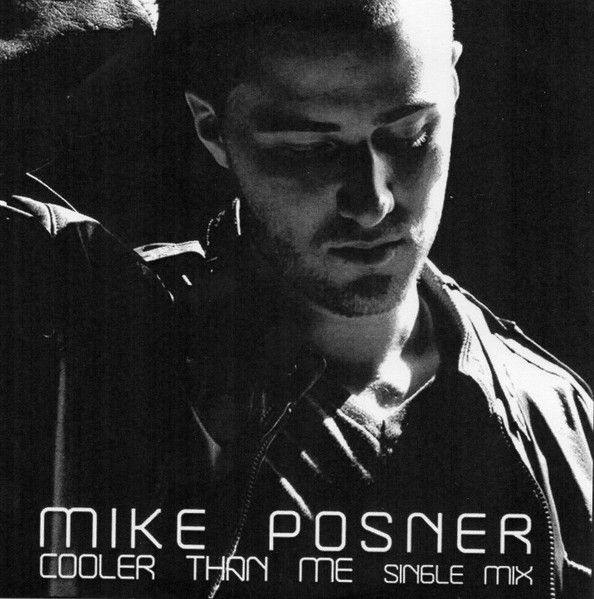By Roxie Parker
14 years ago to this day, Mike Posner released his summer hit, “Cooler Than Me.” With a throbbing dance beat and a killer synth melody, the song was a major success, reaching number 6 on the Billboard Hot 100 chart.
Supposedly based on an experience Posner had at a frat party at Duke, the song’s mocking tone belies his sense of humiliation at being rejected by a girl who thinks she’s “cooler than” him. Lashing out with unfair jabs like “you need everyone’s eyes just to feel seen” and “behind your makeup / nobody knows who you even are” he sounds like a scorned incel. “Cooler Than Me” is Posner’s equivalent of going full-Zuckerberg and feverishly coding Facebook in a dorm room to mock his ex.
This song is obviously problematic with clear allusions to harmful gender stereotypes. But I remember it playing at my elementary school Daddy-Daughter dance and can still sing the whole thing by heart. Maybe it’s weird to be so stuck on this sexist nostalgic-banger, but it’s weirder that the lyrics were completely accepted at the time.
There was practically no outcry about “Cooler Than Me” at its release. Besides one blog post (from the aptly named Annoyed Feminist) that rightly points out the sexist language and creepy behavior depicted, large publications reviewed the song favorably. Medium called it “quirky, funny and well-observed” while the Phoenix New Times praised its “feminist message.” Even more surprising is that contemporary discussions of the single fail to mention how lame it is. In this very long article from our friends at AU written this October, the disturbing content of the song is never mentioned.
Since the context is Posner’s rejection at a frat party, his sense of entitlement to sex is all the more disturbing. As students raised on this music, we know this behavior is prevalent—it’s not uncommon you’ll catch guys loudly strategizing before class about who they’re going to pull tonight. How can we expect this to change among our peers when it’s been completely normalized in media since childhood? Posner has owned up to the problematic tropes in his music, issuing a video apology on Twitter and stating he will no longer use derogatory language about women. However, this apology misses the point, pinning the problem on words like bitch and hoe instead of the pervasive sexism that put him on the map.

“Cooler Than Me” is hardly the most disturbing song to sweep the charts in 2010. Usher’s “OMG” gets to the point with the line “honey got some boobies like wow, oh wow.” And Robin Thicke’s “Blurred Lines” is straight-up rapey.
Posner is the symptom, rather than the cause, of an endemic incel problem in pop culture at large. Women are too often punished and vilified for being self-assured. The ideal woman is an object, someone who will quietly listen to a man rant, demure to his opinions, and most importantly, never reject him.
When we listen to the music of our youth and bask in the auto-tuned nostalgia, we overlook the sexist tropes we think we’ve outgrown. Perhaps the prevalence of these themes in 2010s music explains why there are so many men today who blame their personal failures on women who are cooler than them.


